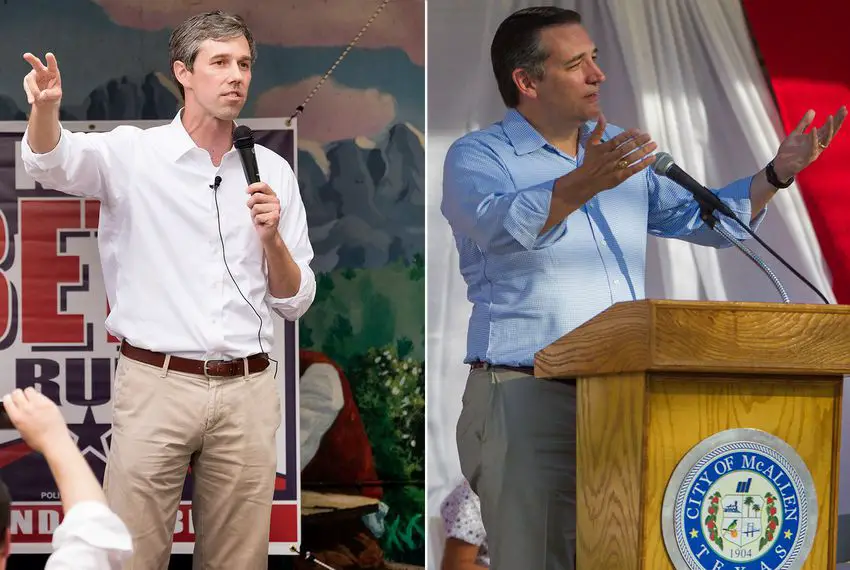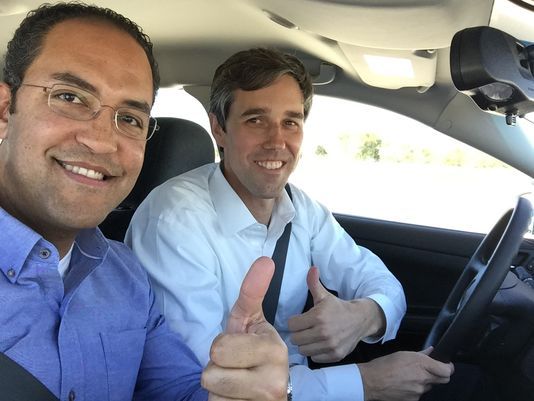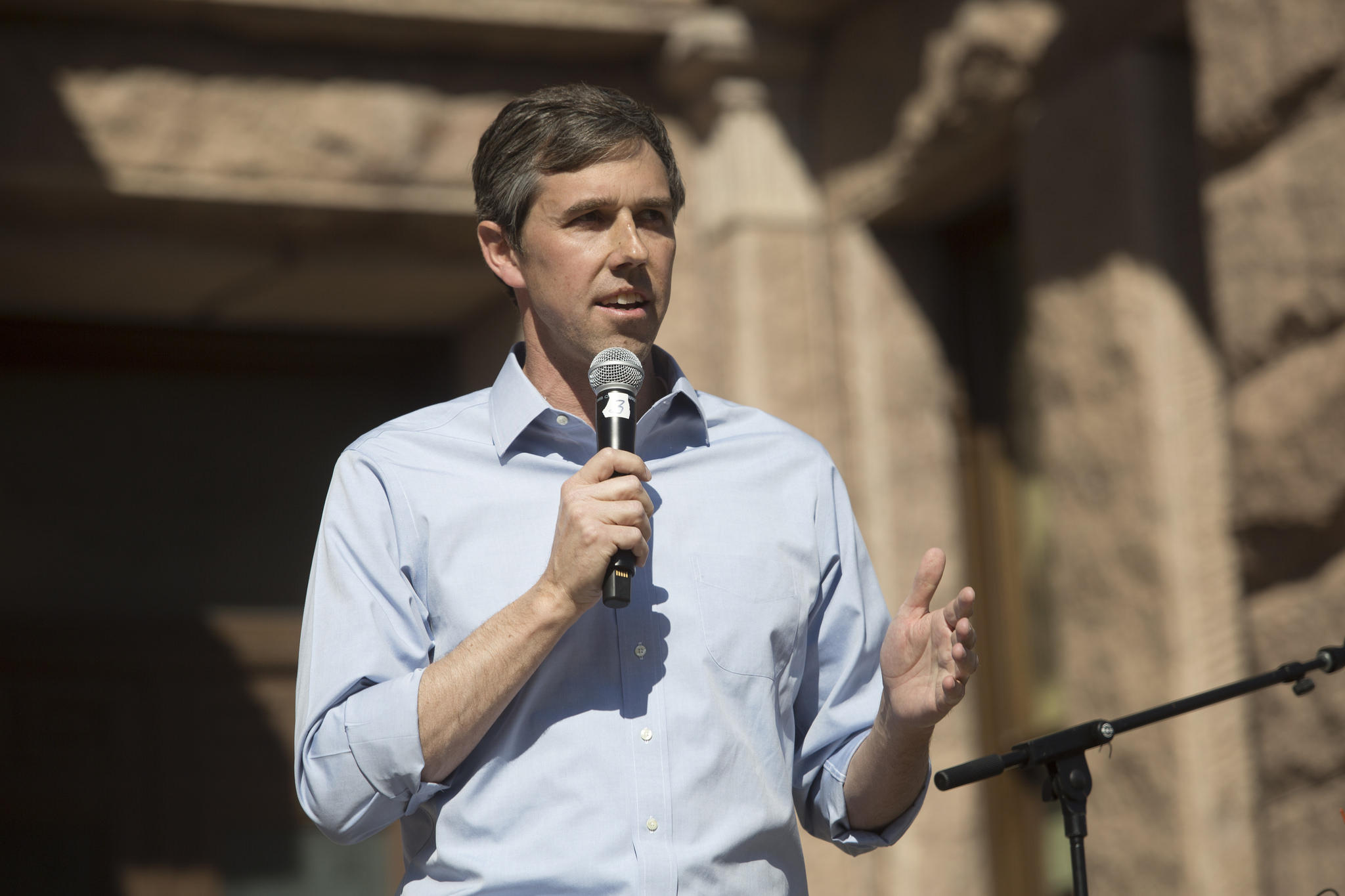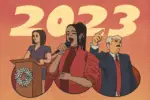The past two years have been nothing short of fascinating in the political landscape. After the 2016 election, political activism has rocketed to unprecedented heights.
After a year of tumultuous Trump leadership amongst various scandals, energized by last year’s victories in Alabama and Virginia along with wins in other states and local races, liberal activists and candidates like Beto O’Rourke are taking on Republicans in places where they have gone virtually unchallenged for years.
This activism has influenced the lives of many, but none have been more affected than those in counties where the voices of voters are not heard. Many of these counties are in deep-red states where the constituents are tired of being ignored. The Trump-GOP tax plan that benefits the wealthy and large corporations at the expense of the rest of the country ensures a blue wave to hit across the U.S.
One proponent of this movement is three-term Congressman Beto O’Rourke of El Paso, Texas, who is on a quest to challenge Republican Sen. Ted Cruz of Texas in the 2018 midterm elections. Both Democrats and Republicans alike are skeptical of the chances O’Rourke has at turning Texas blue since Texas Democrats haven’t won a seat in the Senate since 1988.
Both senators in Texas are Republican and the GOP controls 25 of the 36 House seats. The state’s 11 Democratic House members are clustered in or around the Houston and San Antonio areas, so much of the state is represented entirely by Republicans. Though, according to documents filed with the Texas Secretary of State’s office, a Democratic candidate is registered to run in all of Texas’ 36 congressional races for the first time in 35 years.
Turning Texas blue has been a fantasy for Democrats for decades. If O’Rourke beats Cruz in November, he’ll be the first Texas Democrat to win a U.S. Senate seat in nearly 30 years.

O’Rourke is not only from a different time zone than the rest of his state; he might as well be from a different political reality. Not only does Texas have more Republican voters than Democratic voters, but non-presidential election years, like 2018, also tend to see lower voter turnout among Democrats.
As a congressman who’s barely known outside of El Paso, recognition and fundraising will also be major hurdles for O’Rourke. However, O’Rourke is no stranger to being deemed the underdog and embraces the challenge. In 2012, O’Rourke ran against eight-term Rep. Silvestre Reyes in the Democratic primary.
He campaigns on the importance of serving those who feel ignored by the government, people struggling to find jobs, veterans who have lived with substandard health care, border communities and accountability and accessibility to constituents rather than corporate donors. This is how O’Rourke taps into that underdog sense when making his pitch for why Texans should vote for him.
The question to many now, especially those watching from his hometown, is whether the Bernie-esque politics that made him popular in El Paso are convertible to the massive undertaking of a statewide campaign in Texas.
After Doug Jones’ win in Alabama, O’Rourke sent out a fundraising email with the subject line; “Next stop, Texas 2018.” If Democrats could win such a deep-red state, maybe Democrats have a fighting chance across the country.
At 6 feet 4 inches, a lanky build and bilingual, O’Rourke’s enthusiasm (and looks) have been likened to that of President Kennedy. In a recent Washington Post profile, they described O’Rourke as “a Gen Xer who speaks fluent Spanish and looks more like a Kennedy than the Kennedys do.”
He made a name for himself by starting a tech company while studying at Columbia and playing guitar for an El Paso punk rock band, which included drummer Cedric Bixler-Zavala, who went on to play for the Grammy Award-winning group The Mars Volta.
O’Rourke knows he’s up against some serious odds; he’s campaigning in the most gerrymandered state in the U.S. and running against a political robot whose campaign is funded by the wealthiest donors in the Republican National Committee. O’Rourke’s Bernie-style grassroots campaign started in early 2017 and has been drawing out larger than expected crowds, even in highly conservative areas like Lubbock.
He has pledged to campaign in each of Texas’ 254 counties before the election and is the kind of rising political star Democrats hope can help turn a red Texas, blue. At a moment when Democrats are eager to go on offense against the Trump administration, O’Rourke is laying the foundation for his party’s future by going to small rural counties where Democrats have never set foot.
As of late January, O’Rourke trails Cruz by single digits (45-37 according to an End Citizens United Poll) and has raised nearly $4 million. His campaign strategy is a mix of jogging sessions, rallies, town hall meetings, along with the occasional profane rhetoric and attention-getting events that appear more like a party than a boring policy-related event.
He pledged to campaign without pollsters, consultants or PAC money and has trouble getting much attention from his own national party, which is focused on defending 10 Senate Democrats who are up for re-election next year in the states that Trump won in his race. He has advocated for legalizing marijuana, wrote a book decrying the federal government’s war on drugs and supports abortion, which is a tough sell in Texas.
He’s a strong supporter of LGBT rights, and being from a border-city, O’Rourke is obviously against the construction of a Trump wall. As a fourth-generation Irish-American and as the congressman of a border-city in Texas, there’s no question that O’Rourke’s support for Dreamers and of yielding immigration laws is as strong as can be.
In March 2017, O’Rourke joined Texas Republican Rep. Will Hurd on a road trip from Texas to Washington D.C. after their flight got canceled amid a House vote. The pair live streamed their trip via Facebook where they spoke on numerous opposing issues; a move many applauded as an example that members of opposing parties can come together and agree on some issues. O’Rourke accomplished something similar just this past weekend where he live-streamed for 24 hours, visiting restaurants across Texas and hosting town halls.

Despite being the most gerrymandered state in the U.S., the candidates’ contrasting styles, dissimilar backstories and divergent political philosophies will likely make the matchup the year’s most-watched campaign in Texas.
Cruz believes that he is comfortably ahead of O’Rourke and has decided to ignore him. Cruz has spent a lot of time outside of Texas, thus alienating Texans with his presidential bid midway through his first Senate term. O’Rourke is looking to pick up the voters that Cruz has alienated due to his special-interest allies, joint committees, presidential election transfers, PACs, Super PACs and mega-donors.
Cruz has been a Republican favorite in the Lone Star State but has shown some vulnerability in the last year, after some on the right grew dissatisfied with the senator’s delayed support of the GOP’s presidential nominee, Donald Trump. At the 2016 RNC, Cruz said “[I’m] not in the habit of supporting people who attack my wife and who attack my father,” and declined to endorse Trump. His favorability among Republicans dropped to nearly half overnight. He then reversed his decision and decided to support Trump two months later.
After almost a year of campaigning O’Rourke’s odds of defeating Ted Cruz have receded, but with a good 10 months to go, the momentum created by this Democrat and his team have resonated throughout Texas.

















